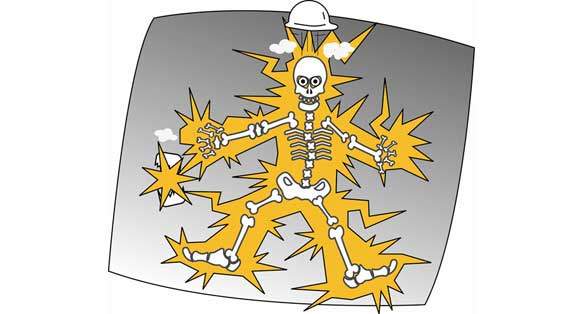We get a lot of questions from the DIY crowd about HVAC-related tasks. There are a lot of things that can easily be done by the beginner DIY-er, like filter changes or even condenser coil cleaning if you know a little about your system, but there are some repairs that should never be done by someone inexperienced.
Things like gas or other fuel piping, anything related to combustion, electrical work, etc. require a baseline level of knowledge in order to meet code requirements, not cause a fire, not die in some horrific manner, and not cause some form of harm to yourself and/or others.
One of the main issues DIYers face is that it is very difficult, if not impossible, to know what you don’t know. I came across this article from our friends at Grainger that talks about some common and potentially scary mistakes that even smart people make when dealing with electricity. This list is a helpful place to introduce yourself to those things that you might not know that you don’t know about electricity.
Bad things can happen when you get over your head with trade-work. Whether your dealing with electricity, gas/propane/oil, power tools, or other things potentially harmful, if you know nothing about it, please don’t mess with it. Ask for help from a professional until you know how to be safe.
10 Dumb Things Smart People Do When Testing Electricity
This may seem like a quick fix if you’re caught without an extra fuse, but the fuse could be all that ends up between you and a spike headed your way.
3. Use the wrong test tool for the job.
It’s important to match your DMM to the work ahead. Make sure your test tool holds the correct CAT rating for each job you do, even if it means switching DMMs throughout the day.
4. Grab the cheapest DMM on the shelf.
You can upgrade later, right? Maybe not, if you end up a victim of a safety accident because that cheap test tool didn’t actually contain the safety features it advertised. Look for independent laboratory testing such as UL or CSA.
5. Leave your safety glasses in your shirt pocket.
Take them out. Put them on. It’s important. Ditto insulated gloves and flame-resistant clothing.
Don’t stop here! For the rest of the tips, check out the full article.

